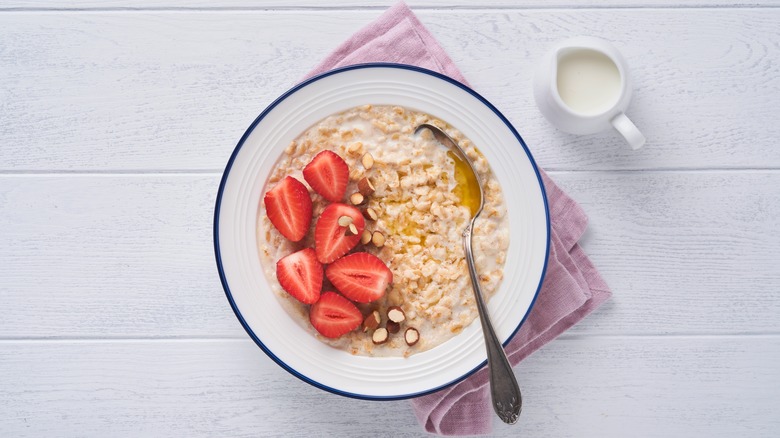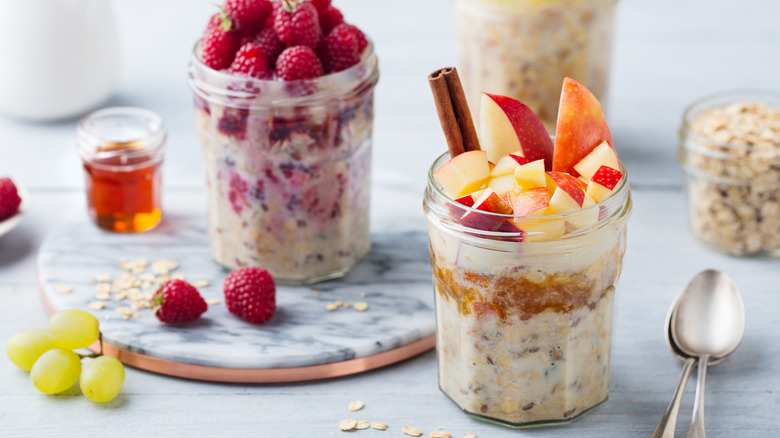Overnight Oats Vs. Cooked: Is There A Nutritional Difference?
Whether you like your oats warm and porridge-like or prepped ahead and chilled overnight, this fibrous cereal grain absorbs any flavor you give it. From strawberry and apple spice overnight oats to Nutella baked and even savory oats, it's easy to get creative while still keeping it healthy. Oats have tremendous health benefits. According to Healthline, they are rich in fiber, minerals, and antioxidants, and can even improve your skin. Oats also contain a soluble fiber called beta-glucan that can help lower cholesterol, improve blood sugar levels, and keep you full longer, aiding in weight loss.
Not to mention, they're extremely easy to incorporate into your diet. You can add them to smoothies, mix them into meatloaf, turn them into granola, fold them into cookies, and of course, make oatmeal. While creamy stovetop oatmeal and overnight oats are a no-brainer way to consume oats, is one better for you than the other?
Uncooked oats are easier on the stomach
According to Bob's Red Mill, overnight oats have increased digestibility and resistant starch. What does this mean? When oats soak overnight, it's almost like you're cooking them without the heat, which helps the starches break down. Once broken down, the levels of phytic acid in the oats decreases, allowing your body to better absorb the nutrients and digest them more efficiently. Healthline explains that phytic acid is a source of phosphorus in plant seeds, which helps the seed to grow. While good for the plant, its consumption in humans prevents us from absorbing key minerals such as iron, zinc, and calcium. Basically, lower levels of phytic acid reduce the risk of mineral deficiencies.
John Hopkins Medicine states that resistant starch is a carbohydrate that has trouble digesting in the small intestine. Though this sounds like it would have a negative effect on the body, because of this, the carb then ferments in the large intestine and transforms into a prebiotic that feeds good bacteria to your gut. Resistant starch is present in all starchy foods, but starchy foods that are cooled versus cooked tend to have higher levels. Therefore, oats that are chilled versus cooked on the stovetop have more resistant starch, which helps aid in digestion and weight loss, and lowers insulin spikes, says Bob's Red Mill.

